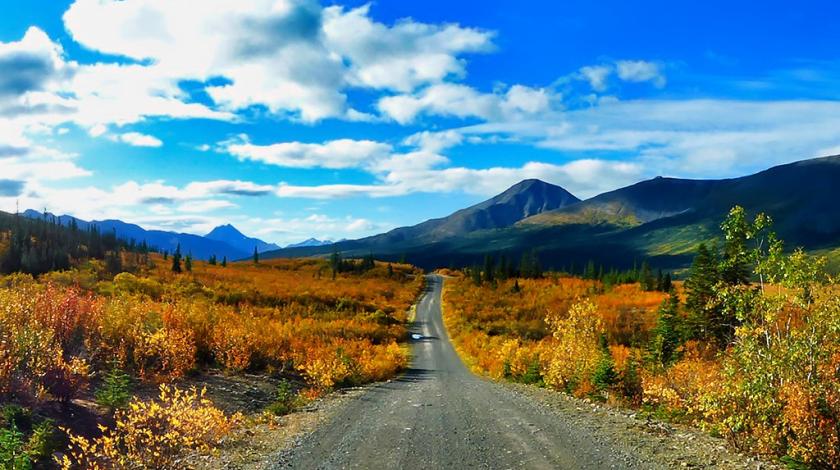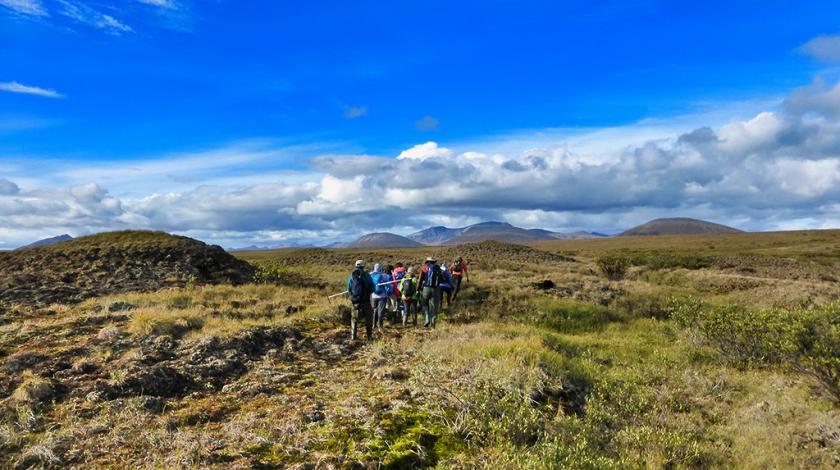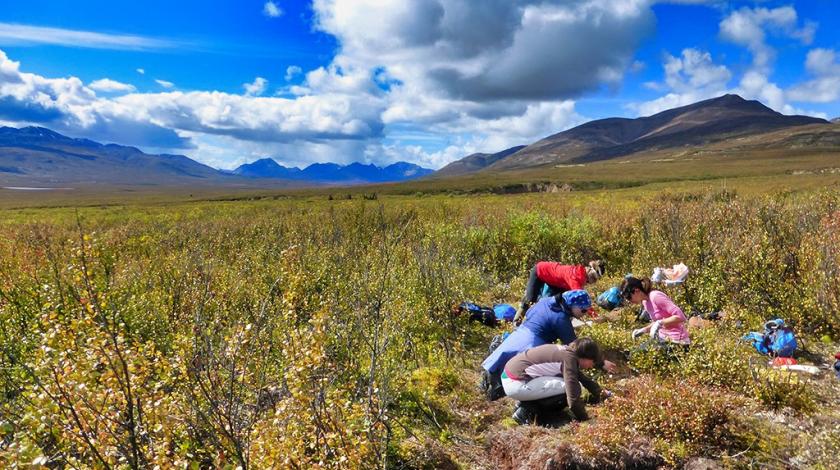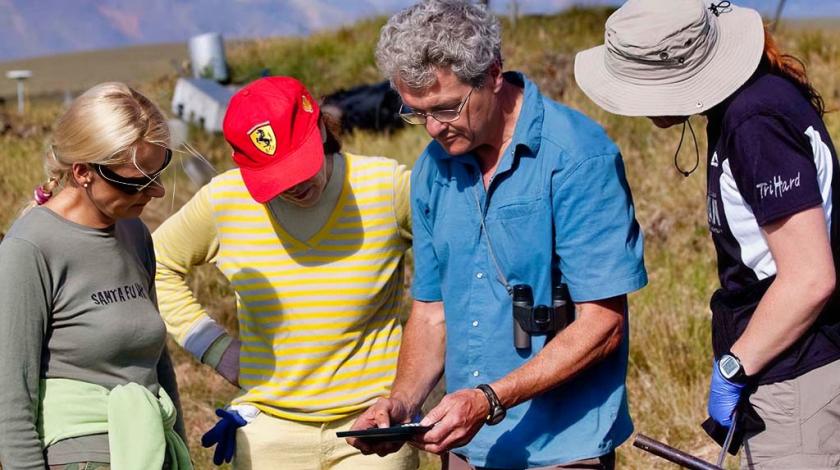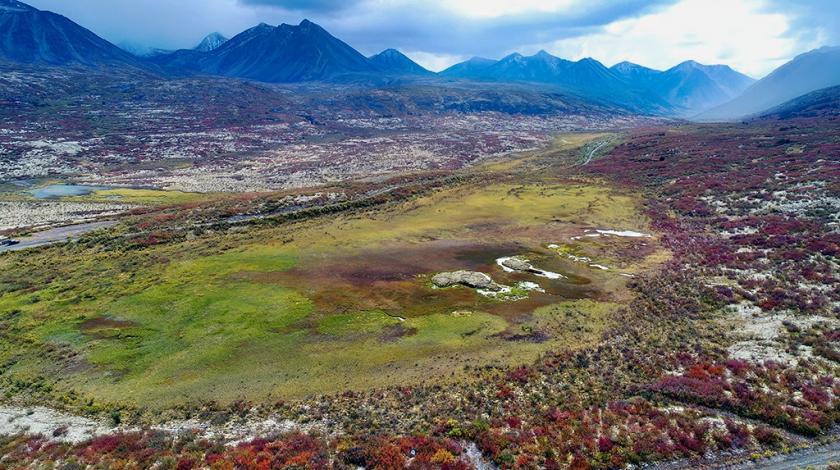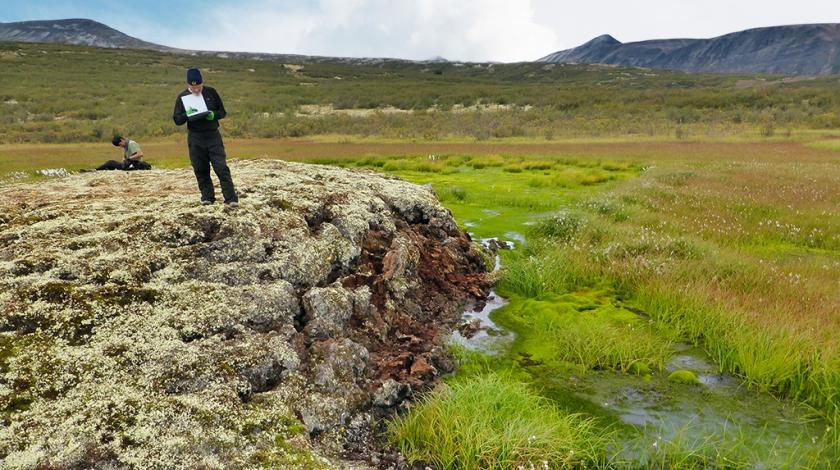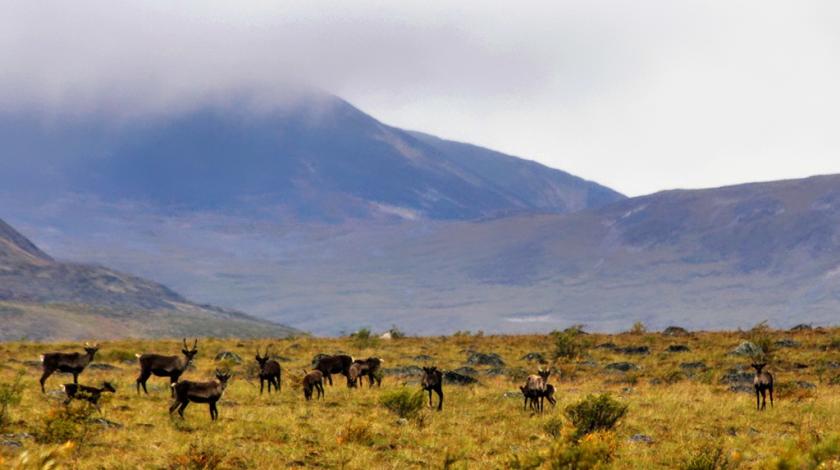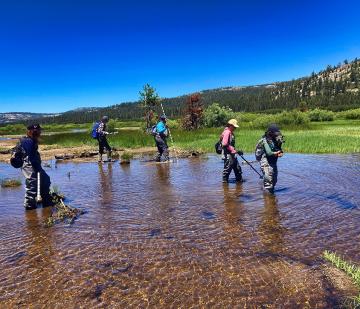Please Note: this expedition also Includes a chartered flight from Whitehorse to the Mackenzie Mountains research site.
BOOK WITH A $500 DEPOSIT
Climate Change in the Mackenzie Mountains
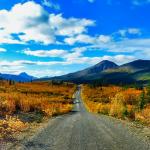
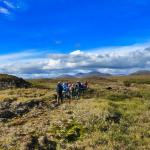
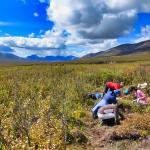
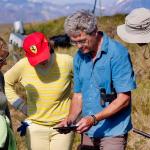
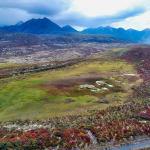
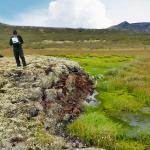
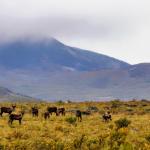
Shrinking sea ice, retreating glaciers, a tree line migrating further north, and less snow that also melts earlier—what do these climate-related changes mean for the Arctic, and for all of us?
Arctic landscapes are changing. Over the last two decades the Mackenzie Mountains have experienced an increase of about 1.25 degrees Celsius in annual permafrost temperature. As a result, trees are being outcompeted by shrubs and the permafrost is thawing. These shifts will change life for every species in the Arctic. That’s why researchers are working hard now to understand exactly how these lands and species work together. Long-term data will allow them to see past seasonal extreme weather events and detect the long-term patterns.
On this expedition, you’ll measure evidence of climate change in the majestic Mackenzie Mountains, a range that forms part of the border between Canada’s Northwest Territories and the Yukon and is on the front line of climate change. Among stunning wildlife, including one of the world’s largest herds of mountain caribou, you’ll help take soil and permafrost samples, monitor the status of the tree line, and record information on native plant species. By helping researchers learn all they can about this fragile environment now, you’ll help preserve it for the future.
A Typical Itinerary
- DAY 1 Introduction and orientation
- DAY 2 Training, practice in the field
- DAYS 3–6 Monitoring permafrost and soil, surveying vegetation
- DAYS 7–10 Observing animals, lab analysis
- DAY 11 Depart for home
.
HOW WILL YOU HELP
.
LOOK FOR SIGNS OF CLIMATE CHANGE
You'll use sophisticated equipment to collect data on features of permafrost and soil. This work helps reveal global-warming-related changes in these aspects of the Arctic.
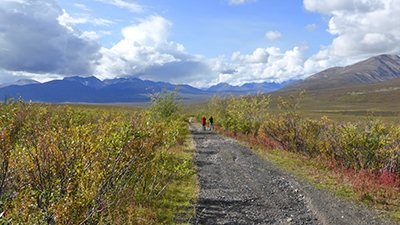
RECORD PLANT OBSERVATIONS
While hiking, you'll look for vascular plants, lichens, and mosses and monitor plant phenology (the timing of seasonal events such as flowering, first leaves, etc.). You'll also core evergreen and deciduous trees to count their rings and count their needles.
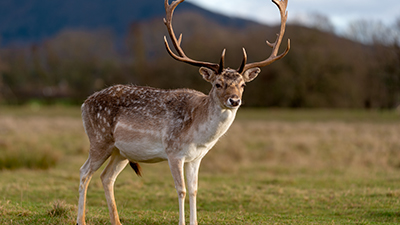
SURVEY FOR MAMMALS AND BIRDS
You'll see how climate change is impacting Arctic animals by recording when and where you see them, and how many you observe.
.
In the afternoon you’ll return to the comfort of the lodge, where you’ll help enter data and process samples in the lab. After a convivial dinner, you might attend a talk on climate change, the natural history of species in the area, or ecotourism. Or you can enjoy the time relaxing, reading, or chatting with team members.
One day during the expedition, your team will take a break from the research scientist's life and explore some of the area’s recreational offerings. Dechen la’ Lodge is the perfect base for day hikes or for simply enjoying your free time by looking out over the landscape.
Field conditions and research needs can lead to changes in the itinerary and activities. We appreciate your cooperation and understanding.
.
.
FEEDBACK & QUESTIONS
.
3 Reviews on this Expedition
GET EARTHWATCH NEWSLETTER
Bi-weekly announcements, new expeditions, and updates on our impact around the globe.
